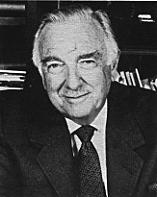As Congress approaches its August recess, it's time to take a look at the fate of drug reform legislation under the Democrats. No bills have reached the president's desk just yet, but the prospects are impressive on a number of key fronts.
Medical marijuana supporters in Colorado won a major victory Monday night as the state Board of Health voted down a Department of Public Health and Environment proposal that would have strictly defined caregivers and limited them to providing for no more than five patients.
Drug war-related corruption extends beyond cops and deputies, and this week is a good example. We've got a federal probation agent in trouble, a US Navy police officer in trouble, a prosecutor heading for prison, as well as a crooked narc and an Ecstasy-dealing deputy. Unusually, what we don't have this week is a dope-smuggling prison guard.
What a difference control of Congress makes! For years, pressure has been building to redress the sentencing disparity between crack and powder cocaine. Now, finally, a bill that would do that is moving in the House, and while it's a Democratic bill it's getting strong bipartisan support. Things are looking good in the Senate too.
The Higher Education Act's infamous "Aid Elimination Penalty," or anti-drug provision, the brainchild of Indiana Republican Rep. Mark Souder, just got slimmed down as a House committee Tuesday voted to restrict its application only to students convicted of selling drugs, not those convicted simply of drug possession.
Spoken like a true drug czar -- Gil Kerlikowske does his best John Walters impression and succeeds pretty well.
The US war on opium poppy production in Afghanistan turned literal Tuesday when US war planes attacked and destroyed a giant pile of poppy seeds in Helmand province. That'll show those seeds!
Oakland's medical marijuana dispensaries asked the voters to tax them, and the voters said "Okay." A measure creating a first-of-its-kind special business tax on medical marijuana sellers passed by a lopsided margin in pot-friendly Oakland.
Albany, New York, sheriff's deputies suspected Tunde Clement was carrying drugs when he got off a bus from New York City in March 2006. They searched his backpack. Nothing. They strip-searched him. Nothing. Then the took him to a hospital, forcibly sedated him, and shoved a camera up his butt. Now, the county and the hospital are paying for their misdeeds.
Could decriminalization be coming to Chicagoland? The Cook County Board has approved it, but the Board president is making noises like he may veto it.
You've heard of medical marijuana vending machines in Los Angeles, right? Well, the UK one-ups LA with methadone vending machines in its prisons.
The trusted and beloved news anchor spoke out about more than one war in his lifetime.
Events and quotes of note from this week's drug policy events of years past.
Do you read Drug War Chronicle? If so, we need your feedback to evaluate our work and make the case for Drug War Chronicle to funders. We need donations too.
"Obama's Drug Czar Says Marijuana Is Dangerous and Isn't Medicine," "How Bush's Drug Czar Fooled the Media and the American People," "Apple's New Marijuana Feature for iPhone is a Smart Business Move," "Undercover Cop Arrested for Selling Drugs to an Undercover Cop," "New York Times Struggles With Marijuana Addiction," "Congressional Drug Warriors Huddle in the Corner, Plot Comeback," "Tax Us: Oakland Voters Approve Medical Marijuana Dispensary Tax -- Dispensaries Supported It," "Patients Defeat Effort to Restrict Medical Marijuana in Colorado," "Colorado Hearing on Proposed Medical Marijuana Caregiver Restrictions Going on Now -- You Can Listen In," "Breaking: House Subcommittee Votes to Reduce Crack Cocaine Penalties to Powder Cocaine Level," "Breaking: House Committee Votes to Eliminate Financial Aid Loss Penalty for Drug Possessors," "Walter Cronkite on the Drug War."
Apply for an internship at DRCNet and you could spend a semester fighting the good fight!
The Interfaith Drug Policy Initiative is hiring a new executive director. IDPI mobilizes religious denominations and organizations, clergy, and other people of faith to promote drug policy reform proposals under serious current consideration in Congress and the states, while building public support for replacing drug prohibition with reasonable regulation.
Update:Needle exchange legislation was passed by the full House of Representatives on Friday afternoon.
What a difference a change of administration makes. After eight years of almost no progress during the Bush administration, drug reform is on the agenda at the Capitol, and various reform bills are moving forward. With Democrats firmly in control of both the Senate and the House, as well as the White House, 2009 could be the year the federal drug policy logjam begins to break apart.

US Capitol, Senate side
While most of the country's and the Congress's attention is focused on health care reform and the economic crisis, congressional committees are slowly working their way through a number of drug reform issues. Here's some of what's going on:
- A bill that would eliminate the notorious sentencing disparity between crack and powder cocaine by removing all references to crack from the federal law and sentencing all offenders under the current powder cocaine sentencing scheme passed its first subcommittee test on Wednesday. This one was bipartisan -- the vote was unanimous. (See related story here)
- The ban on federal funding for needle exchanges has been repealed by the House Appropriations Committee, although current legislation includes language barring exchanges within 1,000 feet of schools. Advocates hope that will be removed in conference committee. (Update:Needle exchange legislation was passed by the full House of Representatives on Friday afternoon.)
- The Barr amendment, which blocked the District of Columbia from implementing a voter-approved medical marijuana law, has been repealed by the House.
- Massachusetts Rep. Barney Frank's marijuana decriminalization bill has already picked up more cosponsors in a few weeks this year than it did in all of last year.
- Virginia Sen. Jim Webb's bill to create a national commission on criminal justice policy is winning broad support.
- The Higher Education Act (HEA) drug provision (more recently known as the "Aid Elimination Penalty"), which creates obstacles in obtaining student loans for students with drug convictions, is being watered down. The House Education and Labor Committee Wednesday approved legislation that would limit the provision to students convicted of drug sales and eliminate it for students whose only offense was drug possession. (See related story here.)
- The "Safe and Drug Free Schools Act" funding has been dramatically slashed in the Obama administration 2010 budget.
- Funding for the Office of National Drug Control Policy's youth media anti-drug campaign has been dramatically slashed by the House, which also instructed ONDCP to use the remaining funds only for ads aimed at getting parents to talk to kids.
"All the stars are now aligned on all these issues," said Bill Piper, national affairs director for the Drug Policy Alliance. "I've never felt so optimistic about drug policy reform in DC."
Looking into his crystal ball, Piper is making predictions of significant progress this year. "I have a strong sense that the Barr amendment and the syringe funding ban will be eliminated this year. The Webb bill will probably be law by December. There's a good chance that HEA reform and the crack sentencing reform will be, too. If not, we'll get them done next year," he said.
"Things are heating up like I've never seen before," Piper exclaimed. "It's like a snowball rolling downhill. The more reforms get enacted, the more comfortable lawmakers will be about even more. Cumulatively, these bills represent a significant rollback in the drug war as we know it."
Former House Judiciary committee counsel Eric Sterling, now head of the Criminal Justice Policy Foundation, was a bit more restrained. Congress is just beginning to come around, and there are dangers ahead, he said.
"We're seeing windows being opened where we can feel the first breezes of spring, but it's not summer yet," Sterling said. "There are people asking questions about drug policy more broadly, there is more openness on Capitol Hill to thinking differently. Liberals are not as afraid they will be attacked by the administration. The climate is changing, but my sense is we're still at the stage where members of Congress are only beginning to take their shoes off to put their toes in the water."
What progress is being made could be derailed by declining popularity of Democrats, the drug reform movement's failure to create sufficient cultural change and a stronger social base to support political change, and the return of old-style "tough on drugs" politics, Sterling warned.
"People need to be aware that as unemployment continues to rise, Democrats will be feeling afraid of repercussions at the polls," he said. "If the economic stimulus does not seem to be generating jobs, if there is a widespread sense of trouble in the country, the drug issue can easily be recast as a bogeyman to distract people. Members of Congress could start talking again about 'fighting to help protect your families.' Those old ways of thinking and talking about these issues are by no means gone," Sterling argued.
That is why he is concerned about building a social base to support and maintain drug reform. "The drug reform movement needs to create cultural change to support political change, and I fear we haven't done enough of that," he worried.
Sterling also warned of a possible reprise of the late 1970s and early 1980s, when the emergence of a parents' anti-drug movement helped knock drug reform off the agenda for nearly a quarter-century. The administration's effort to defund the Safe and Drug Free Schools Act in particular could spark renewed concern and even a reinvigorated anti-drug mobilization, he said.
"The administration says the Safe and Drug Free Schools program hasn't demonstrated its effectiveness and grant funds are spread too thin to support quality interventions, which may well be true," he said. "But little dribs and drabs of that get spread around the states, and that means a lot of people could be mobilized to fight back. The parents' community and prevention professionals will mobilize around these issues with renewed vigor," he predicted.
The Wild West show that is California's marijuana reality could also energize the anti-reform faction, Sterling said. "For those of us outside California, it's hard to fathom what's going on there. I don't think anyone back East can imagine a dispensary operating every quarter-mile along Connecticut Avenue," he explained. "I ask myself if this is growing in a way that could create a potential powerful reaction like we saw in the 1970s. There has already been a smattering of stories about marijuana use in school by patients. Will there be exposés next fall about medical marijuana getting into the schools, kids getting stoned? People in the movement have to be aware that very real and powerful emotions can be unleashed by these changes," he warned.
Still, "momentum is on our side," Piper said. "Webb's bill has bipartisan support, the sentencing stuff is taking off in a bipartisan way, and the crack bill has the support of the president, the vice-president, the Justice Department, and some important Senate Republicans. That's probably the steepest hill to climb, but I think we're going to do it."
These are all domestic drug policy issues, but drug policy affects foreign policy as well, and there, too, there has been some significant change -- as well as significant continuity in prohibitionist policies. And that situation is exposing some significant contradictions. Here, it is the Obama administration taking the lead, not Congress. The Obama administration has rejected crop eradication as a failure in Afghanistan, yet remains wedded to it in Colombia, and it has embraced the Bush administration's anti-drug Plan Merida assistance package to Mexico.
"The really exciting thing is Afghanistan and special envoy Richard Holbrooke's ending of eradication there," said Sanho Tree, drug policy analyst for the Institute for Policy Studies. "That's huge, and it has repercussions for the Western Hemisphere as well. The US can't have two completely divergent policies on source country eradication. On Latin America, I suspect there is a power struggle going on between the drug warriors and the Holbrooke faction. We need a Holbrooke for Latin America," he said.
The media spotlight on Mexico's plague of prohibition-related violence may be playing a role, too, said Sterling. "The mayhem in Mexico certainly created a lot of thinking about how to do things differently earlier this year," he noted. "The media climate has changed, and perhaps that's more important at this stage than the climate inside the Beltway."
But the Mexico issue could cut against reform, too, he suggested. "Where is all that marijuana in California coming from?" he asked. "If someone can make the case that Mexican drug cartels are supplying the medical marijuana market there, that could get very ugly."
As the August recess draws nigh, no piece of drug reform legislation has made it to the president's desk. But this year, for the first time in a long time, it looks like some may. There are potential minefields ahead, and it's too early to declare victory just yet. But keep that champagne nicely chilled; we may be popping some corks before the year is over.
back to top

Colorado state medical marijuana application
Monday night, Colorado's rapidly increasing number of medical marijuana patients and burgeoning medical marijuana industry won a major victory against state regulators trying to cramp their style -- and fiddle with a medical marijuana law written into the state constitution by voter initiative nine years ago. After a marathon public hearing packed with nearly 400 medical marijuana supporters, the Colorado Board of Health rejected a
controversial proposal from the state Department of Public Health and Environment that would have tightened up the definition of a caregiver and would have limited caregivers to providing for no more than five patients.
The vote comes on the heels of Rhode Island legislation establishing a dispensary system, the third state in the nation to legislatively approve dispensaries, and the first on the east coast. Rhode Island's legislature last month overrode a veto by Gov. Donald Carcieri (R) to pass the law, which they did 35-3 in the Senate and 67-0 in the House.
"It's a great win for Colorado," said a tired but elated Brian Vicente Tuesday morning. "We took on the machine and won."
Vicente is head of Sensible Colorado, which worked with Colorado NORML, SAFER, the Marijuana Policy Project, and Americans for Safe Access to spearhead the campaign to keep the Colorado program intact.
The Board of Health was originally scheduled to vote on the proposal in February, but was forced to postpone the vote until it could find a venue large enough to accommodate the hundreds of people who wanted to have their voices heard during a public hearing. A 2004 effort by the Board of Health to impose similar restrictions was thrown out by the courts because it held no public hearing then.
"The health department seems to be a glutton for punishment," said Vicente. "This is the second time we've beaten them on this issue. I'm fairly confident this will keep them quiet for awhile."
"The rejection of this silly proposal is symbolic of a new, more sensible approach to marijuana being taken in this state and nationwide," said SAFER's Mason Tvert. "For too long, public policies have been designed by law enforcement officials who seem more concerned with preserving power than the health and safety of those they serve. The Colorado Board of Health didn't fall for it this time. We can only hope other health and government officials around the nation will follow their example and also turn a critical eye to our nation's failed marijuana policies."
Between February and now, the state's medical marijuana program has gone into overdrive. The number of patients is increasingly dramatically, with some 2,000 patients added in June, bringing the state's total to more than 9,000. And with the change of administrations in Washington, dispensaries have begun proliferating. There are now nearly 40, most of them in the Denver metro area. Nearly 600 different physicians have issued recommendations for medical marijuana.
Two provisions of the health department proposal earned the most denunciations from patients and providers: One would tighten the definition of who qualifies as a licensed caregiver; the other would limit the number of patients a caregiver can provide for to five. There is currently no limit on the number of patients a caregiver can grow or otherwise provide for.

Colorado medical marijuana certificate (courtesy Cannabis Culture Magazine)
Supporters of the proposal -- basically limited to police, prosecutors, and the state's chief medical officer -- told the Board of Health Monday that the current situation was susceptible to fraud and caused confusion over who could legally grow.
Dr. Ned Calonge, the chief medical officer, warned that the medical marijuana program will "continue to grow out of control" unless the restrictive rules were adopted. The 2000 initiative defines caregivers as people who have a "significant responsibility for managing the well-being of a patient," he said, adding that he did not think that allowed for the creation of dispensaries.
Capping the number of patients a caregiver could provide for at five was reasonable, Calonge said. "We define a primary caregiver as significantly participating in a patient's everyday care," he said. "If those caregivers are making home visits to each patient, considering travel time, they could visit five patients a day. We believe we have ample precedent and supportive evidence for this number," he said.
Denver Assistant District Attorney Helen Morgan told the board some counties aren't prosecuting marijuana grows because of confusion over who is allowed to grow medical marijuana. She also said that authorities in Denver have found large marijuana grows whose operators claim to be providing medical marijuana.
That claim was echoed by Holly Dodge, deputy district attorney for El Paso County, who spoke on behalf of the Colorado District Attorney's Council. "There is no way of appropriately protecting a patient when they have a caregiver with 300 other patients," she said. "That's not caregiving, that's marijuana growing."
But Calonge, Dodge, and Morgan were definitely in the minority, with the sometimes raucous crowd hissing and booing their comments. For most of the day, the board heard from patient after patient, as well as caregivers, dispensary operators, and doctors, that the system was working just fine as it is. The board was also clearly warned that it would be slapped with an already prepared lawsuit today if it voted to adopt the restrictive proposal.

Colorado Marijuana Boot Camp for activists, organized by SAFER
One physician opposing the restrictive proposal was Dr. Paul Bregman, who warned it would drive patients to the streets in search of their medicine. "More regulation drives people to the black market, and that means patient care suffers," said Bregman.
Damien LaGoy told the board he smokes marijuana to counter the side effects, including nausea, of his daily doses of HIV medication. He gets his medicine from a caregiver who serves nine people, he said, adding that if couldn't use that caregiver he would be forced to trawl Colfax Avenue in search of street dealers. "I might as well not have a license and just go buy it on the street like everyone else," he said.
Dispensary operator Jim Bent told the board the proposal threatened patient health and treated marijuana dispensaries unfairly. "If this law passes, patients will lose their access to safe medicine and some will die," he said. "Please be compassionate." Bent also rejected any limits on the number of patients a dispensary can handle. "I'd like to be under the same standards as Walgreens or a Wal-Mart pharmacy," he said.
Former Denver senior deputy district attorney Lauren Davis told the board the proposal would not address law enforcement concerns raised earlier in the day and could even be counterproductive. "Limiting caregivers will increase the number of small-grower operations," she said.
At the end of the day, the Board of Health agreed with opponents of the rule change. It voted 6-3 to reject the proposal.
"They received more emails and written comments on this than they had on any issue in history," said Vicente. "They had hundreds of people show up to testify against this. They heard from an impressive array of experts, doctors, lawyers, writers of the law, sick patients, and caregivers. The board listened."
back to top
Drug war-related corruption extends beyond cops and deputies, and this week is a good example. We've got a federal probation agent in trouble, a US Navy police officer in trouble, a prosecutor heading for prison, as well as a crooked narc and an Ecstasty-dealing deputy. Unusually, what we don't have this week is a dope-smuggling prison guard. Let's get to it:
In McAllen, Texas, a federal probation officer was arrested July 15 for using government data bases to run background checks on truck drivers for a drug trafficking organization. Armando Mora, 36, is charged with drug trafficking and bribery. He allegedly took payments from drug traffickers to do the background checks and warned them against hiring three truck drivers this year because two were undercover agents and one was one of his own probationers and an FBI informant. Mora got paid $5,000 for that last bit of information.
In Benton Harbor, Michigan, a Benton Harbor police narcotics supervisor was arrested last Friday after being indicted by a federal grand jury on corruption charges. Bernard Hall, 33, had supervised former Officer Andrew Collins, who was convicted of planting drug evidence and falsifying search warrants in January. Collins is currently serving 37 months in federal prison. Hall is accused of conspiring with Collins to falsify search warrants and plant drugs, as well as unlawfully seizing cash and personal property during drug raids. A second count charges him with making false statement to a grand jury investigating Collins, and the third count charges him with making false statements to the FBI and the US Attorney's Office about a drug deal by a snitch he had overseen. That drug deal never took place. Hall stepped down after being arrested. Local prosecutors are reviewing more than 100 drug cases and convictions in which Hall and Collins were involved.
In Billings, Montana, a former Carbon County prosecutor was sentenced to 2 ½ years in federal prison July 16 on a single count of maintaining a drug-involved premises. Robert Eddleman hosted cocaine parties at his residence before and after becoming the country prosecutor in 2006. He was convicted on state cocaine charges and resigned in March. Prosecutors said he tried to scuttle at least one drug case to cover up his own activities.
In Bridgeport, Connecticut, a US Navy police officer pleaded not guilty Monday to cocaine possession and distribution charges. Andy Regalado, 36, has been in custody since he was pulled over for driving erratically last month. Police turned up nine pounds of cocaine when they searched his vehicle.
In New Orleans, a Tangipahoa Parish sheriff's deputy was indicted July 16 by a federal grand jury after being arrested by federal agents earlier this month and charged with possession with the intent to distribute Ecstasy. Kevin Whittington, 44, faces up to 20 years in federal prison and a fine of up to $1 million.
back to top
An end to the notorious sentencing disparity between crack and powder cocaine may be in sight. After more than a decade of congressional dawdling since the US Sentencing Commission called for the disparity to be ended because of its racially disproportionate impact, a bill that would do so is finally moving in the Congress.

DEA crack cocaine photo
Under current federal law, it takes 500 grams of powder cocaine to garner a five-year mandatory minimum prison sentence, but only five grams of crack to earn the same time. The 100:1 sentencing disparity has been widely criticized for years, especially because about nine out of 10 federal crack prosecutions are aimed at African-Americans. (Most crack users are white, despite popular belief.)
On Wednesday, the House Judiciary Subcommittee on Crime, Terrorism, and Homeland Security passed H.R. 3245, the Fairness in Cocaine Sentencing Act of 2009. They did so unanimously, making the vote a striking moment of bipartisanship on a once controversial issue. The bill removes all references to "cocaine base" -- federalese for crack -- from the US criminal code, effectively treating all forms of cocaine the same for sentencing purposes.
The bill is sponsored by Rep. Bobby Scott (D-VA) and has 20 cosponsors, including every Democrat on the subcommittee. It now heads to the full House Judiciary Committee, which is headed by Rep. John Conyers (D-MI), also an ardent supporter of ending the sentencing disparity.
Sentencing reform advocates cheered the bill's progress. "I knew it was coming," said Julie Stewart, president of Families Against Mandatory Minimums. " There has been so much attention paid to sentencing policies in the past six months that it was only a matter of time before one of the half-dozen sentencing bills in Congress would start moving. Today it did."
Repealing the crack/powder cocaine sentencing disparity is a much needed step in restoring trust and enacting smarter policies , said Stewart. "If Congress eliminates the sentencing disparity between crack and powder cocaine, it would not only restore some faith in the justice system among the communities most affected by the law, it would reduce prison overcrowding and free up funding for more effective rehabilitation efforts. A minimum of $26 million would be saved in the first year of the reforms and nearly $530 million over the next 15 years," she said. "FAMM strongly urges Congress to make the changes retroactive so that people currently serving unjust sentences for crack cocaine can benefit and taxpayers will see even greater savings."
back to top
For a decade, a law authored by Indiana Republican Rep. Mark Souder has been an obstacle to higher education for people with drug records. The Higher Education Act (HEA) anti-drug provision, known more recently as the "Aid Elimination Penalty," barred students with drug offenses from receiving financial aid for specified periods of time.
Under pressure from students, educators, and others in a growing coalition to repeal the provision, Souder himself supported a partial reform in 2006 that restricted the provision's reach to those convicted of drug offenses while in school, and further changes in 2008 to help motivated students regain their eligibility early. Still, pressure to repeal it completely remained.
Now, with Democrats firmly in control of the Congress, the provision is once again undergoing scrutiny. On Tuesday, the House Education and Labor Committee voted to further shrink the provision's impact by limiting it only to students who are convicted of selling drugs, not those convicted simply of drug possession.
The vote came as part of broader legislation reforming the student loan system. That legislation must still pass the House and the Senate before the reform takes place. The committee turned back an amendment by Souder to strip the language reforming the drug provision by a vote of 20-27.
back to top
In Fresno, California, Wednesday to witness a massive marijuana eradication bust, Office of National Drug Control Policy (ONDCP -- the drug czar's office) head Gil Kerlikowske once again revealed a startling gap in his vocabulary. Kerlikowske claimed not to know a word that should be de rigeur in any drug policy debate, and he claimed the president was unaware of it, too.

Gil Kerlikowske
"Legalization is not in the president's vocabulary, and it's not in mine," he admitted to the
Fresno Bee.
It's not the first time Kerlikowske has relied on that trope. In fact, it appears to be one of his favorite stock phrases.
Not content with displaying his lack of vocabulary, Kerlikowske went on to display an equally stunning lack of knowledge about the emerging consensus on the myriad medicinal uses of marijuana. "Marijuana is dangerous and has no medicinal benefit," he said, ignoring an ever-growing pile of research finding just the opposite.
back to top
US war planes dropped bombs on a 300-ton pile of opium poppy seeds in southern Helmand province Tuesday afternoon. The US military dropped 1,000 pounds on the pile of seeds, then followed up with strikes from helicopters to make sure they were really dead.

opium poppies
The publicity stunt was designed to win hearts and minds of Afghan poppy farmers, a State Department official told CNN. "There is a nexus that needs to be broken between the insurgents and the drug traffickers," State's Tony Wayne said. "Also, it is part of winning the hearts and minds of the population because in some cases they are intimidated into growing poppies."
The US has recently shifted its approach to poppy cultivation in Afghanistan, which supplies more than 90% of the world's opium and its derivative, heroin. The US is ending support for eradication programs and instead targeting drug traffickers, especially those linked to the Taliban, which is estimated to earn hundreds of millions of dollars a year from the black market industry.
The US and its NATO allies are also trying to win over poppy farmers through alternative development programs. But those programs are difficult to put in place in areas outside the effective control of the Afghan government or Western military forces.
The attack on the seed pile comes as US and NATO forces are enduring their bloodiest month yet in the nearly eight-year-old invasion and occupation of Afghanistan. According to the war casualty monitor I Casualties, 63 Western troops have been killed so far this month, making it far and away the deadliest in the war. The previous monthly highs were 46 each in June and August 2008.
back to top
Voters in Oakland, California, approved by a wide margin a measure to tax medical marijuana sold at the city's four dispensaries. The measure is the first in the country to impose a special tax on medical marijuana.

Oaksterdam University, school for persons interested in the legal marijuana business
The special tax was supported by the city's medical marijuana community, led by Oaksterdam University head and Coffeeshop Blue Sky owner Richard Lee. Lee and other supporters, including city council members, said the dispensaries wanted to do their part to help the city during economic hard times.
The all mail-in vote took place during the one-month period beginning June 22, and the votes were being counted Tuesday night. According to the Alameda County Registrar of Voters, the ballot measure, known as Measure F, passed with 80% of the vote.
The measure creates a special business tax rate on dispensaries of $18 for every $1,000 in gross sales and is expected to generate hundreds of thousands of dollars a year for the city. Currently, the dispensaries are paying the same business tax rate as any other retail business in the city, $1.20 per $1,000. The measure will take effect on January 1.
The measure was part of a package of revenue measures before Oakland voters. All passed, but none by as large a margin as Measure F. That's just the latest sign of acceptance of marijuana in a very pot-friendly city. In 2004, voters there approved a measure requiring police to make arresting adults for small-time pot offenses their lowest priority.
"Oakland voters know a good idea when they see one," said Laura Thomas, deputy state director for the Drug Policy Alliance. "Once again, Oakland voters are ahead of the curve and we hope the rest of the state will follow their lead. The politicians need to listen to the wisdom of the voters. Taxing medical marijuana is a no brainer and fiscally makes sense for a cash-strapped state like California. But this is the tip of the iceberg," added Thomas. "Once Californians see the benefits of taxing and regulating medical marijuana in Oakland, the next logical step is to tax and regulate all marijuana revenue across the state."
back to top
New York's Albany County and Albany Medical Center Hospital will pay $125,000 to a New York man who was first strip-searched and then hospitalized and sedated against his will while hospital employees at police direction inserted a camera in his rectum in search of contraband. That is according to the out of court settlement agreed to over the weekend to end a federal lawsuit brought by the victim.
The victim, Tunde Clement, was arrested at the Albany bus terminal in March 2006 when he stepped off a bus from New York City. Sheriff's investigators suspected the ex-convict was carrying drugs, but found none in his backpack. He was then handcuffed, taken to the police station, and strip-searched. Again, no drugs were found. Then police took him to Albany Med, where doctors forcibly sedated him against his will.
While under sedation, doctors inserted a camera in his rectum and scanned his digestive system with X-rays. They also induced vomiting and took blood and urine samples to test for drugs and alcohol. They found nothing. After 10 hours in custody, Clement was charged with resisting arrest and released on his own recognizance. An Albany judge later threw out that charge.
Sheriff's investigators never obtained a search warrant for the procedure, nor did hospital officials require them to produce one. Normally, people under arrest cannot be forcibly sedated without a court order unless they are in imminent danger. Although hospital records indicate Clement was behaving normally and showed no signs of any medical emergency, hospital officials and police considered their desire to search his body "a medical emergency."
Clement subsequently filed a federal lawsuit against Albany Med and several doctors and nurses and against Albany County, Sheriff James Campbell, Inspector John Burke, who heads the dope squad that arrested Clement, and eight investigators assigned to the unit. He claimed his civil rights were violated and that he was the victim of assault and battery when officials and doctors strapped him down and injected him with sedatives against his will.
Now, the county and the medical center will pay for their misdeeds. Or, more precisely, local taxpayers will. Perhaps that will inspire local taxpayers to demand that law enforcement shape up and that medical personnel not be willing accessories to abusive law enforcement practices.
back to top
The Cook County (greater Chicago) Board Tuesday night passed a measure decriminalizing the possession of up to 10 grams of marijuana, but it is unclear if Board President Todd Stroger will allow it to take effect. He told the Chicago Tribune that he wasn't ready to commit one way or another.
Under the ordinance, police officers would have the ability to issue a ticket with a $200 fine rather than making an arrest and filing criminal charges. If enacted, the ordinance would at first apply only to those unincorporated areas of the county where the commission is in charge. But the move would give municipal police forces within the county, including Chicago, the option to adopt decriminalization as well.
"Why bog down the courts with that kind of thing when we can just charge them a little fine instead?" said Commissioner Earlean Collins, chief sponsor of the measure, who added that her grandson had been arrested and jailed for a small amount of marijuana. "That's what this ordinance in the state allows us to do, to charge them a little fine, and then we will collect the fine rather than them charging them, taking them to the jail lockup, having them the next morning show up in court, and then bogging down the system, and they take the fine," she said.
"Lots of college towns do this," said Commissioner Bill Beavers. "We're just catching up to the 21st century."
Unsurprisingly, Cook County Sheriff Tom Dart thought the move was premature. "It should be looked at, but as far as decriminalizing it, there needs to be a real thorough debate before people go down that road as far as what A, scientifically what information shows, but then B, what prosecutorially have been done with the cases," Dart said.
But Board President Stroger was initally coy about his possible veto plans. "I don't know. I wasn't paying enough attention to it. I'll find out about it later," Stroger said. "I can't comment on it."
By Wednesday morning, though, Stogner told local radio host Greg Jarrett he didn't think it was a good idea. "I'm not really an advocate of trying to decriminalize the drug that people start before they move on to the higher stuff," echoing the discredited "gateway theory" that marijuana use leads to harder drug use.
Chicago Mayor Richard Daley was equally coy when asked about the ordinance Wednesday. "We just had a ban on smoking. People say you can't smoke, they said, 'Please don't smoke.' And now everyone's saying, 'Let's all smoke marijuana.' I mean, after a while you wonder where America's going to," Daley said. But when asked directly whether he was against the ordinance, Daley waffled. The issue is "really clouded," he said, declining to stake out a position.
That's something of a retreat for Mayor Daley. Just a few years ago, he supported decriminalization in Chicago, saying most minor pot cases were thrown out. "If 99 percent of the cases are thrown out and we have police officers going to court, why?" Daley asked then. "It costs you a lot of money for police officers to go to court... You have to look at that... proposal."
But Board President Stoger is the man with the power to kill the ordinance, not Daley. If he does veto the measure, it will be tough to override. Under board rules, it takes 14 votes on the 18-person council to override. The measure did not pass by that great a margin.
back to top
In a bid to promote opiate maintenance therapy behind bars, the British government has begun installing methadone vending machines in the country's prisons. Justice Minister Phil Hope told parliament last week that 57 vending machines have been installed so far.
The machines allow prisoners to receive an individualized dose of methadone by giving a fingerprint or an iris scan. The machines are paid for by the Department of Health and will cost about $6.5 million dollars, about 10% of the department's prison drug treatment budget. The target is to have the machines in half of Britain's 140 prisons.
According to the latest available prison population statistics, in 2007, nearly 6,400 of Britain's 81,000 prisoners were there on drug charges, with slightly more than half of them charged with simple drug possession or possession with intent to distribute. The official statistics provide no breakdown of which drugs were involved.
"Methadone dispensers are a safe and secure method for providing a prescribed treatment," said a health department spokesman. "They can only be accessed by the person who has been clinically assessed as needing methadone and that person is recognized by a biometric marker, such as their iris."
Providing methadone to addicted prisoners allows them to manage their habits without resorting to illicit heroin supplies within the prisons. But the opposition Conservatives were quick to try to score political points, claiming that the Labor government would rather "manage offenders' addiction" than end it.
"The public will be shocked that Ministers are spending more on methadone vending machines than the entire budget for abstinence based treatments," said Dominic Grieve, the Conservative shadow justice secretary. "Getting prisoners clean of drugs is one of the keys to getting them to go straight. We need to get prisoners off all drug addiction -- not substitute one dependency for another. The government's approach of trying to 'manage' addiction is an admission of failure."
The Conservatives are hammering away at Labor any way they can as they prepare for national elections sometime in the coming months. Attacking enlightened approaches to inmate drug addiction is just another arrow in their "tough on crime" quiver.
back to top
Epilogue by Walter Cronkite at the close of ""The Drug Dilemma: War or Peace," The Cronkite Report, June 20, 1995:
Every American was shocked when Robert McNamara, one of the master architects of the Vietnam war, acknowledged that not only did he believe the war was, "wrong, terribly wrong," but that he thought so at the very time he was helping to wage it. That's a mistake we must not make in this 10th year of America's all-out War on Drugs.

Walter Cronkite
Tonight we have seen a war that in its broad outline is not working. And we've seen some less war-like ideas that appear to hold promise. We've raised more questions than we've answered, because that's where the Drug War stands today. We're a confused people, desperately in need of answers and leadership. Legalization seems to many like too dangerous an experiment; to others, the War on Drugs, as it is now conducted, seems inhumane and too costly. Is there a middle ground?
Well, it seems to this reporter that the time has come for President Clinton to do what President Hoover did when prohibition was tearing the nation apart: appoint a bi-partisan commission of distinguished citizens, perhaps including some of the people we heard tonight, a blue-ribbon panel to re-appraise our drug policy right down to its very core, a commission with full investigative authority and the prestige and power to override bureaucratic concerns and political considerations.
Such a commission could help us focus our thinking, escape the cliches of the Drug War in favor of scientific fact, and more rationally analyze the real scope of the problem, answer the questions that bedevil us, and present a comprehensive drug policy for the future.
We cannot go into tomorrow with the same formulas that are failing today. We must not blindly add to the body count and the terrible cost of the War on Drugs, only to learn from another Robert McNamara 30 years from now that what we've been doing is, "wrong, terribly wrong."
Goodnight.
back to top
July 24, 1967: The Beatles pay for a full page advertisement in a British newspaper, which states, "The law against marijuana is immoral in principle and unworkable in practice." The ad calls for the legalization of marijuana possession, release of all prisoners on marijuana possession charges and government research into medical uses.
July 29, 1995: In an interview with the editors of the Charlotte Observer, Pat Buchanan says he favors measures that would allow doctors to prescribe marijuana for relief from certain conditions. "If a doctor indicated to his patient that this was the only way to alleviate certain painful symptoms, I would defer to the doctor's judgment," he says.
July 29, 1997: A large number of Los Angeles sheriff's deputies swarm into the home of author and medical marijuana patient Peter McWilliams and well-known medical marijuana activist Todd McCormick, a medical marijuana user and grower who had cancer ten times as a child and suffers from chronic pain as the result of having the vertebrae in his neck fused in childhood surgery. McCormick ultimately serves a five-year sentence, while McWilliams chokes to death on his own vomit in 2000 after being denied medical marijuana by a federal judge.
July 27, 2000: Referring to one of drug czar Barry McCaffrey's tired lines, Salon.com publishes "Fighting 'Cheech and Chong' Medicine," an article showing that the entire genesis of the government's new media campaign, the motivation for making the Partnership for Drug Free America's donated ad time and making it a billion dollars worth of taxpayer funds, was a direct response to the passage of medical marijuana initiatives in California and Arizona in 1996.
July 26, 2001: The British newsmagazine The Economist devotes an entire issue to drug policy, endorsing decriminalization and harm reduction.
July 25, 2002: The Hawaiian Tribune Herald reports: Marijuana eradication in Hawaii contributed to the increase in the use of the drug "ice," according to a three-year study prepared for the National Institute on Drug Abuse. The study's four-page executive summary states, "The use of ice in Honolulu had led to particularly serious physical and psychological problems and significant social disruption in poor working communities where it replaced marijuana, which had become scarce and expensive due to eradication policies... Residents were both pushed away from pakalolo [marijuana], their staple drug of choice, and pulled toward ice by a well organized marketing campaign by Asian distributors." It also notes that violence is more prevalent in the Honolulu meth users.
July 27, 2002: The Associated Press reports that a regional director of Mexico's main intelligence agency was slain in the border city of Tijuana, the 11th person killed over the last week in what authorities say is an escalating drug war.
July 30, 2002: ABC airs John Stossel's special report, "War on Drugs, A War on Ourselves," which critically points out the futility of the government's current approach to drug control policy.
July 26, 2003: The Honolulu Advertiser reports that a Hilo woman who smokes marijuana to treat her glaucoma received a check for $2,000 from her homeowners insurance company for the loss of four plants stolen from her yard. Under a state law passed in 2000, patients with permits who are under a doctor's care may possess up to 3 ounces of marijuana and grow up to seven plants at a time for medical purposes.
July 28, 2003: James Geddes, originally sentenced to 150 years for possession of a small amount of marijuana and paraphernalia and for growing five marijuana plants, is released. Geddes had said, "How can it be that the President, his wife, the Vice President and his wife, the mayor of Washington DC, even the Speaker of the House can do these things, but I must pay dearly?"
back to top
Do you read Drug War Chronicle? If so, we'd like to hear from you. DRCNet needs two things:
- We are in between newsletter grants, and that makes our need for donations more pressing. Drug War Chronicle is free to read but not to produce! Click here to make a donation by credit card or PayPal, or to print out a form to send in by mail.
- Please send quotes and reports on how you put our flow of information to work, for use in upcoming grant proposals and letters to funders or potential funders. Do you use DRCNet as a source for public speaking? For letters to the editor? Helping you talk to friends or associates about the issue? Research? For your own edification? Have you changed your mind about any aspects of drug policy since subscribing, or inspired you to get involved in the cause? Do you reprint or repost portions of our bulletins on other lists or in other newsletters? Do you have any criticisms or complaints, or suggestions? We want to hear those too. Please send your response -- one or two sentences would be fine; more is great, too -- email [email protected] or reply to a Chronicle email or use our online comment form. Please let us know if we may reprint your comments, and if so, if we may include your name or if you wish to remain anonymous. IMPORTANT: Even if you have given us this kind of feedback before, we could use your updated feedback now too -- we need to hear from you!
Again, please help us keep Drug War Chronicle alive at this important time! Click here to make a donation online, or send your check or money order to: DRCNet, P.O. Box 18402, Washington, DC 20036. Make your check payable to DRCNet Foundation to make a tax-deductible donation for Drug War Chronicle -- remember if you select one of our member premium gifts that will reduce the portion of your donation that is tax-deductible -- or make a non-deductible donation for our lobbying work -- online or check payable to Drug Reform Coordination Network, same address. We can also accept contributions of stock -- email [email protected] for the necessary info.
back to top
Along with our weekly in-depth Chronicle reporting, DRCNet also provides daily content in the way of blogging in the Stop the Drug War Speakeasy -- huge numbers of people have been reading it recently -- as well as Latest News links (upper right-hand corner of most web pages), event listings (lower right-hand corner) and other info. Check out DRCNet every day to stay on top of the drug reform game! Check out the Speakeasy main page at http://stopthedrugwar.org/speakeasy.

prohibition-era beer raid, Washington, DC (Library of Congress)
Since last issue:
Scott Morgan writes: "Undercover Cop Arrested for Selling Drugs to an Undercover Cop" (over 27,000 readers via Reddit!), "Obama's Drug Czar Says Marijuana Is Dangerous and Isn't Medicine," "How Bush's Drug Czar Fooled the Media and the American People," "Apple's New Marijuana Feature for iPhone is a Smart Business Move," "Undercover Cop Arrested for Selling Drugs to an Undercover Cop," "New York Times Struggles With Marijuana Addiction" and "Congressional Drug Warriors Huddle in the Corner, Plot Comeback."
Phil Smith previews "Tax Us: Oakland Voters Approve Medical Marijuana Dispensary Tax -- Dispensaries Supported It" and "Patients Defeat Effort to Restrict Medical Marijuana in Colorado," and notes "Colorado Hearing on Proposed Medical Marijuana Caregiver Restrictions Going on Now -- You Can Listen In."
David Borden previews: "Breaking: House Subcommittee Votes to Reduce Crack Cocaine Penalties to Powder Cocaine Level" and "Breaking: House Committee Votes to Eliminate Financial Aid Loss Penalty for Drug Possessors," and remembers "Walter Cronkite on the Drug War."
David Guard posts numerous press releases, action alerts and other organizational announcements in the In the Trenches blog.
Please join us in the Reader Blogs too.
Again, http://stopthedrugwar.org/speakeasy is the online place to stay in the loop for the fight to stop the war on drugs. Thanks for reading, and writing...
back to top
Want to help end the "war on drugs," while earning college credit too? Apply for a StoptheDrugWar.org (DRCNet) internship for this summer or fall semester and you could come join the team and help us fight the fight!
StoptheDrugWar has a strong record of providing substantive work experience to our interns -- you won't spend the summer doing filing or running errands, you will play an integral role in one or more of our exciting programs. Options for work you can do with us include coalition outreach as part of the campaign to rein in the use of SWAT teams, to expand our work to repeal the drug provision of the Higher Education Act to encompass other bad drug laws like the similar provisions in welfare and public housing law; blogosphere/web outreach; media research and outreach; web site work (research, writing, technical); possibly other areas. If you are chosen for an internship, we will strive to match your interests and abilities to whichever area is the best fit for you.
While our internships are unpaid, we will reimburse you for metro fare, and DRCNet is a fun and rewarding place to work. To apply, please send your resume to David Guard at [email protected], and feel free to contact us at (202) 293-8340. We hope to hear from you! Check out our web site at http://stopthedrugwar.org to learn more about our organization.
back to top
The Interfaith Drug Policy Initiative (IDPI), based in Washington, DC, is seeking a new executive director to lead our efforts toward non-punitive, non-coercive drug policies nationwide.
IDPI mobilizes religious denominations and organizations, clergy, and other people of faith to promote the drug policy reform proposals currently under serious consideration in Congress and several states (e.g., medical marijuana, sentencing reform, and needle exchange), while gradually building public support for replacing drug prohibition with reasonable regulations. IDPI has mobilized hundreds of clergy behind successful legislative campaigns.
QUALIFICATIONS
Candidates must have a proven track record of strong, results-oriented management, as well as outstanding fundraising abilities and excellent oral and written communication skills. Although it is not necessary to be an ordained clergy person, the executive director must have credibility within the faith community and be able to persuade and organize religious leaders from a wide variety of denominations. He/she must be a strategic thinker with high motivation, persistence, resourcefulness, and focus. Non-profit management experience is a plus, whether or not faith-based.
RESPONSIBILITIES
The executive director will maintain IDPI at its present level of operation (three employees) and soon expand the organization into a larger, more formidable opponent of the "war on drugs." The executive director reports to the organization's board of directors, develops the annual budget, and establishes measurable goals in collaboration with other drug policy reform organizations. To these ends, he/she will:
- oversee IDPI's fundraising efforts (including a membership renewal program) and directly solicit contributions from large donors;
- ensure that IDPI's strategy is sound and the tactics are effective and cost-efficient;
- recruit, hire, and manage the staff, with an emphasis on setting and meeting clear and ambitious goals;
- ensure that IDPI remains in compliance with relevant non-profit laws and financial regulations;
- participate in some of IDPI's programmatic work, such as directly educating and soliciting the involvement of religious leaders, generating favorable media coverage, and speaking at public forums.
COMPENSATION
The starting salary is between $70,000 and $85,000, with the possibility of rapidly increasing well beyond $100,000 depending on the success of his/her fundraising efforts.
TO APPLY
To apply, read IDPI's Job Application Process and follow the instructions there.
back to top









